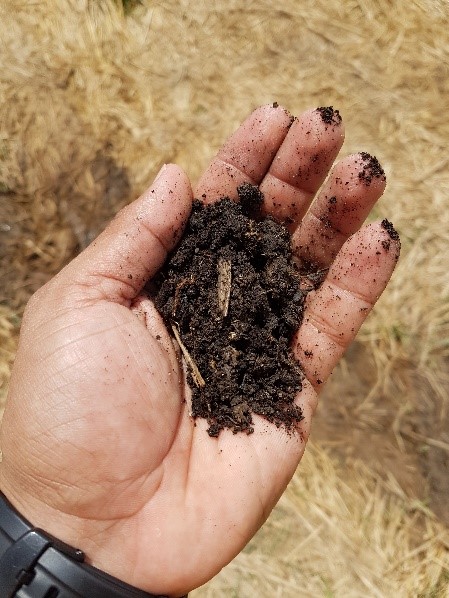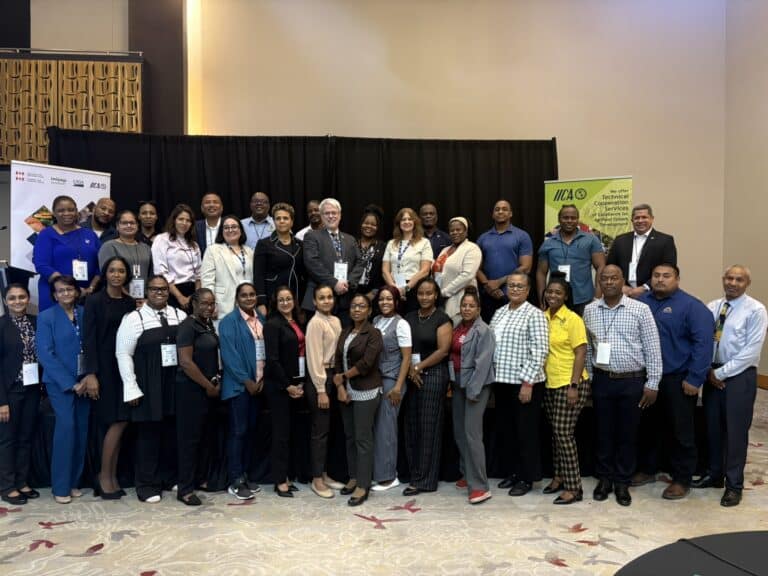

Compost is organic matter that has been decomposed and recycled as a fertilizer and soil amendment. At the simplest level, the process of composting requires making a heap of wet organic matter known as green waste (leaves, food waste) and waiting for the materials to break down into humus after a period of weeks or months. Modern, methodical composting is a multi-step, closely monitored process with measured inputs of water, air, and carbon- and nitrogen-rich materials.
Under the technical capacity-building component of the PAGoDA-“Productivity enhancement of banana farms through integrated soil fertility management in the banana belt area of Belize” project, a two-day workshop (theory and practical) on composting was delivered to stakeholders in the banana industry. The workshop was imparted by Dr. Abimbola Abiola, IICA Representative from Haiti Delegation, and had the participation of twenty-three persons including farmers and representatives from the University of Belize, the Ministry of Agriculture and the Banana Growers Association.
Participants were taught on the steps involved in setting up a basic backyard system for composting and the different parameters to take into consideration for proper composting as well as different tools for measuring and collecting data were also displayed and the importance of monitoring for quality compost making was emphasized.
More information:











